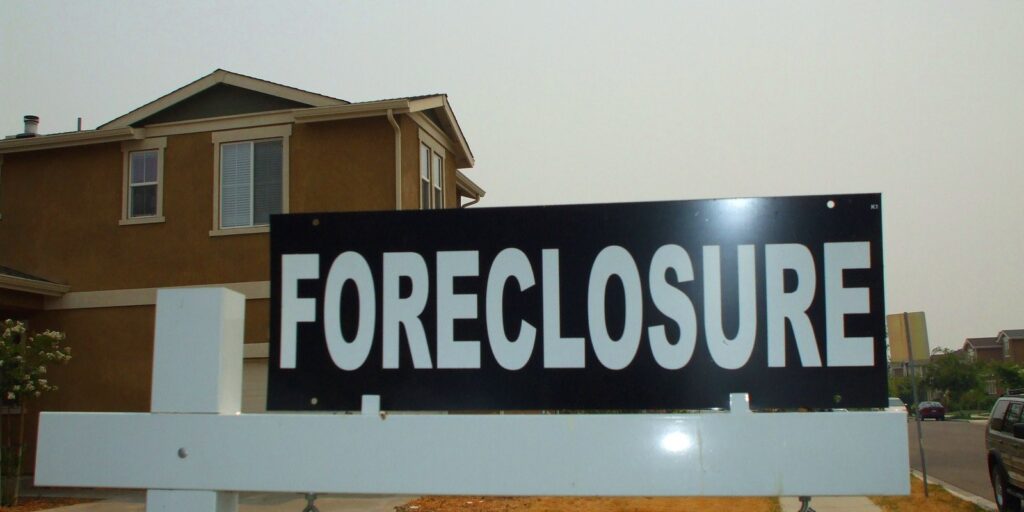Facing the possibility of foreclosure is a daunting experience for any homeowner. It occurs when a borrower is unable to make mortgage payments, and the lender takes legal action to recover the unpaid debt. However, it’s important to know that there are several options available to avoid foreclosure. As a mortgage expert, I advise homeowners to explore these options as soon as possible to avoid the negative consequences of foreclosure. Here are seven options that homeowners can consider:
Loan Modification
A loan modification is an agreement between the borrower and the lender to change the terms of the original loan. This may involve reducing the interest rate, extending the term of the loan, or changing the type of loan. The aim is to make the monthly payments more affordable and prevent foreclosure. A loan modification is a good option for homeowners who are experiencing temporary financial difficulties, such as job loss or illness. However, it’s important to note that not all borrowers qualify for loan modifications. Lenders typically require proof of financial hardship, and the borrower must demonstrate the ability to make the modified payments.
Refinance
Refinancing involves taking out a new loan to pay off the existing mortgage. This option can help homeowners to obtain a lower interest rate, reduce monthly payments, and avoid foreclosure. Refinancing can be a good option for homeowners who have improved their credit score or have built up equity in their home. However, refinancing also has costs, such as closing fees and appraisal fees, which can make it an expensive option for some borrowers.
Repayment Plan
A repayment plan is an agreement between the borrower and the lender to spread out missed payments over a certain period of time. This option can help homeowners to catch up on missed payments and avoid foreclosure. The repayment plan is an excellent option for homeowners who are experiencing short-term financial difficulties and can demonstrate the ability to make the payments. The lender may require the borrower to pay a lump sum or add the missed payments to the end of the loan term.
Forbearance
Forbearance is an agreement between the borrower and the lender to temporarily suspend or reduce mortgage payments. This option can provide short-term relief to homeowners who are experiencing financial difficulties, such as job loss or illness. The lender may require the borrower to provide proof of financial hardship and demonstrate the ability to make the payments after the forbearance period ends. Forbearance can be an excellent option for homeowners who need temporary relief, but it’s important to note that interest will continue to accrue during the forbearance period, and the missed payments will need to be paid back eventually.
Sell Your Home
If you cannot afford your mortgage payments, selling your home may be an option to avoid foreclosure. This can help you to pay off the mortgage and any outstanding debts. Homeowners who have built up equity in their homes or can sell their homes for more than they owe on the mortgage can use this option. However, selling your home can be time-consuming and may take several months to complete.
Sell Your Home To Avoid Foreclosure
Short Sale
A short sale involves selling your home for less than the amount owed on the mortgage. This option can help homeowners to avoid foreclosure and settle their mortgage debt. Short sales are typically negotiated with the lender, and they require the borrower to provide proof of financial hardship. Short sales can be an excellent option for homeowners who owe more on their mortgage than their home is worth or who are unable to sell their home for the full amount of the mortgage.
Deed in Lieu of Foreclosure
A deed in lieu of foreclosure involves voluntarily transferring ownership of your home to the lender. This option can help homeowners to avoid foreclosure and settle their mortgage debt. The lender will typically require the borrower to provide proof of financial hardship and demonstrate that they are unable to make the mortgage payments. Deed in lieu of foreclosure can be an excellent option for homeowners who are unable to sell their homes or who owe more on their mortgage than their home is worth. However, it’s important to note that a deed in lieu of foreclosure may have a negative impact on the borrower’s credit score, and the borrower may still be responsible for any outstanding debts.
—————————–
It’s important to note that the best option for avoiding foreclosure depends on your individual circumstances. As a mortgage expert, I recommend that homeowners explore these options and seek professional advice from a qualified mortgage specialist to determine the best solution for their specific situation.
If you are facing foreclosure, it’s important to act quickly. Contact your lender as soon as possible to discuss your options. Many lenders have foreclosure prevention programs that can help homeowners avoid foreclosure. In addition, there are several government programs that can provide assistance to homeowners facing foreclosure, such as the Home Affordable Modification Program (HAMP) and the Home Affordable Refinance Program (HARP). These programs may have specific eligibility requirements, so it’s important to research them carefully.
In conclusion, foreclosure is a challenging and stressful situation for any homeowner. However, there are several options available to help you avoid foreclosure and keep your home. As a mortgage expert, I advise homeowners to explore these options and seek professional advice to determine the best solution for their specific circumstances.
If you need more information about avoiding foreclosure, here are some additional resources:
The Department of Housing and Urban Development (HUD) offers free counseling services for homeowners facing foreclosure. You can find a HUD-approved housing counselor in your area by visiting their website.
The Consumer Financial Protection Bureau (CFPB) offers a variety of resources and tools to help homeowners avoid foreclosure. You can find more information on their website.
The National Foundation for Credit Counseling (NFCC) is a non-profit organization that provides free credit counseling services to homeowners facing foreclosure. You can find more information on their website.











